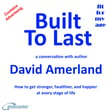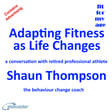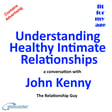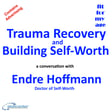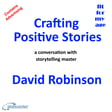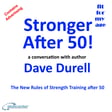
Sleep Hygiene a conversation with Manohar Grandhi
Freedom from Insomnia. meet the author of "My Sleepless Nights: A Story of Victory over Insomnia"
Manohar Grandhi is a sleep coach who helps IT professionals to sleep well and stay on top of their game.
In this episode of the Abeceder health and well-being podcast Fit For My Age, Manohar describes to host Michael Millward the scale of his own sleep challenges and his attempts to address challenges.
Manohar explains why many of the solutions provided modern medicine do not work and how he found a more holistic approach.
He describes how resolving his problems with insomnia and sleeplessness inspired him to change his career and help other people to do the same.
Find out more about Michael Millward and Manohar Grandhi at Abeceder.co.uk.
Audience Offers - listings include links that may create a small commission for Fit For My Age
Buy My Sleepless Nights: A Story of Victory over Insomnia on Amazon
Proactive Positive Ageing.
We recommend The Annual Health Test from York Test, because knowing the risks early means you can take appropriate actions to maintain good health.
An experienced phlebotomist completes a full blood draw at your home or workplace, so that 39 different health markers can be assessed in a UKAS-accredited and CQC-compliant laboratory.
A Personal Wellness Hub gives access to easy-to-understand results and guidance to help you make effective lifestyle changes.
Visit York Test and use this discount code AGE25.
Fit For My Age is made on Zencastr, because Zencastr is the all-in-one podcasting platform, that really does make creating content so easy.
If you would like to try podcasting using Zencastr visit zencastr.com/pricing and use our offer code ABECEDER.
Travel Members of the Ultimate Travel Club enjoy travelling at trade prices on flights, trains, hotels, holidays and so many other travel related purchases. Use the link to access discounted membership.
Matchmaker.fm If you are a podcaster looking for interesting guests or if, you have something interesting to say Matchmaker.fm is where great hosts and great guests are matched and great podcasts are hatched. Use our offer code MILW10 for a discount on membership.
Being a Guest
If you would like to be a guest on Fit For My Age, please contact using the link at Abeceder.co.uk.
We recommend the podcasting guest training programmes available from Work Place Learning Centre.
We appreciate every like, download, and subscriber.
Thank you for listening.





